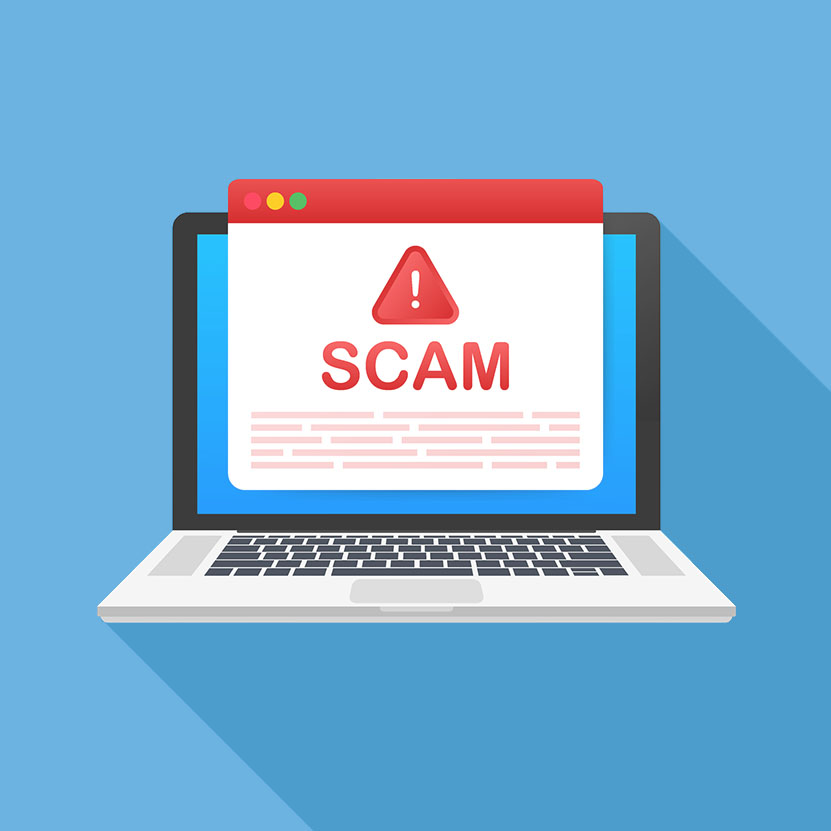Fraud & Scams
Please be aware that European Arab Investment Bank will never call you to request your personal information, such as your Social Security number, your date of birth, your Online Banking username and password, your credit/debit card number(s), or the three-digit security code on the back of your credit/debit card.


Fraud Text Message Scam
We have received reports from customers that have received a text message about their account requesting personal information to verify the account or transaction. This link is FAKE. Delete the text and please note European Arab Investment Bank will also not call or text you to request personal information. If the call or text sounds suspicious, please do not respond.
Fraud Using European Arab Investment Bank’s Name & Reputation
European Arab Investment Bank Executives and Officers Impersonation
We have recently learned of a scam where a fraudster impersonates a European Arab Investment Bank executive (for example, John Abbott, CFO) in an email, social media (e.g., Facebook) message or text message, informing the intended victim that they need assistance with moving a sum of money from a foreign bank account. Prior to the transaction taking place, the impersonator will request an “advance fee” of some type, which is where the loss to the victim takes place. If you receive an email, text message or social media message of this type, we strongly advise you to delete the message. You may verify the authenticity of any message from European Arab Investment Bank by contacting us at contact@eaib.co.uk.
Imposter Websites
The evolution of the internet has brought with it a number of extremely convenient advances in the way we shop, bank, and interact with the world around us. At the same time, that evolution has also given way to new risks—new avenues for criminals to create websites that are either fake, fraudulent or a scam to rip off the unsuspecting.
Imposter websites are designed to appear legitimate and even mimic/clone the brand look of a business. The cloned page will use the same images, content and page navigation of business but the logo, login screen, contact information and URL has changed. The website actually serves as a vehicle to compromise users’ personally identifiable information or login credentials for the purpose of effecting financial fraud.
Protect Your Personal Information Online
Be stingy with your personal information when you’re on the web. When a site asks for your personal information, know that the data you enter could end up in the wrong hands. A web site might look like the real deal, but many are fronts for criminals waiting to steal your money and personal information.
Research a company before choosing to give it your business. Enter the company name and the word ‘complaints’ into an online search engine to see what comes up. And take the time to ask a company for the details on state or government licenses. If a company can’t provide the information or if you can’t find the details searching government agency sites, it could be a red flag.
Coronavirus (COVID-19) Scams
Because of the uncertainty many of us are feeling due to the coronavirus (COVID-19), scammers are viewing this time as an opportunity to capitalize on people’s fears and vulnerabilities. There’s no reason to panic, but you should be vigilant and take the appropriate, if not additional, precautions to ensure you and your finances remain secure.
One recent scam that has surfaced involves the upcoming stimulus checks the federal government will issue nationwide. Scammers are claiming to work for the government and are targeting individuals through calls, texts, emails and websites. They are asking for personal information in return for a stimulus payment.
Remember: Never provide information such as your Social Security number, bank account number, PayPal account information or anything else that could put your personal information at risk.
We understand people may want to support local businesses and individuals who have been impacted by the coronavirus. However, it is important to verify the legitimacy of organizations and individuals to protect your personal information and accounts. Scammers are targeting victims by impersonating charities, medical professionals and health authorities.
Notify Us of Fraud and/or a Scam
To notify us of online fraud, identity theft or a scam involving European Arab Investment Bank or your European Arab Investment Bank account, please call the +447935213804, Monday through Friday, 9:00 a.m.— 5:00 p.m. (EST) or e-mail us at contact@eaib.co.uk. Please include your name, e-mail address, telephone number and a detailed description of the possible fraud or scam.
